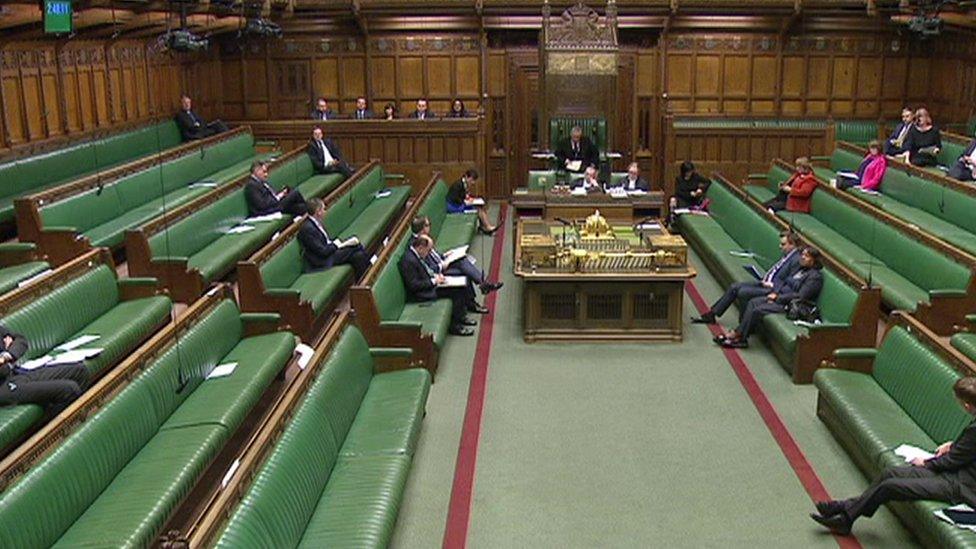Coronavirus: House of Commons to move to three-day week
- Published

The number of MPs in the chamber will be limited to about 50
The House of Commons is to reduce its sitting hours and prioritise coronavirus-related business when it returns next week.
There will be no proceedings on Thursday or Friday for the foreseeable future and consideration of non-virus legislation will be pared back.
Screens are to be erected in the Commons chamber to enable MPs to question ministers by video link.
The focus will be on ministerial statements and select committee work.
Under a "hybrid" plan put forward by Commons Speaker Sir Lindsay Hoyle, business will continue in the Chamber but with significantly fewer MPs attending to allow social distancing rules to be observed.
While there are expected to be no more than 50 MPs in the chamber at any one time, the aim is for a further 120 to be able to ask questions virtually using videoconferencing technology.
Parliament rose for its Easter recess early on 25 March due to the pandemic. It will return for two days next week, on Tuesday and Wednesday, and sit for three days a week thereafter.
Legislation due to be debated next week is to be postponed, leaving the Commons to focus on departmental question times, ministerial statements and select committee work.
Conservative MPs have reportedly been told that they are not expected to attend in person next week, given the travel restrictions in force as part of the lockdown.
On Wednesday, the new Labour leader Sir Keir Starmer is due to make his debut at Prime Minister's Questions.
However, it is not clear whether Boris Johnson will be present as he is currently recuperating from coronavirus and not undertaking any work after spending seven nights in hospital, three of them in intensive care.
Foreign Secretary Dominic Raab is currently deputising for the PM and Sir Keir has indicated that deputy leader Angela Rayner will stand in for him whenever Mr Raab is taking questions.
The Commons does not routinely sit on Fridays, unless MPs are debating Private Members Bills.